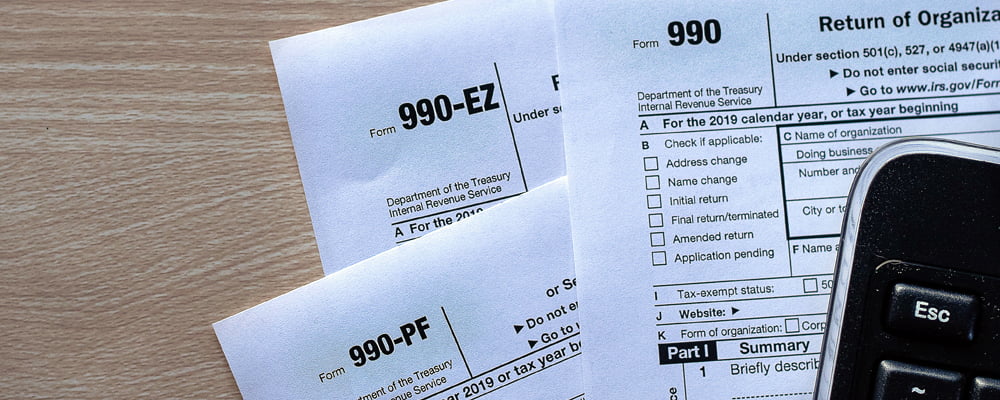Not all organizations and due dates were affected when the IRS pushed the annual tax filing deadline back to May 17. Corporations, for example, still had to file by April 15, 2021. When there is so much going on with changing tax law, filing dates, and funding opportunities, it can be easy to overlook ordinary planning details.
Tax-exempt organizations with calendar year-ends are thus reminded that Form 990 and other forms are still due on May 17, 2021.
The Importance of Form 990
Though for some nonprofits the practice of submitting Form 990 may seem arbitrary, there are several important reasons why the informational return is required, even for small organizations.
- Promote financial transparency and share information about programs with the public and stakeholders
- Participate in regulatory oversight
- Maintain tax-exempt status
Plus, it’s a good way to stay on top of changing tax laws.
Nonprofits can use the Form 990 to its full extent by including detailed information about programs and services, and ways they’ve helped their community. Include the mission statement and prior year accomplishments. Form 990 is made public, so in addition to tax compliance, it’s also a useful PR tool.
Even if a nonprofit doesn’t owe any federal income tax, it is still required to file annual informational returns. Failure to file Form 990 for three consecutive years will cause the organization to lose its tax-exempt status. Late filings will be accepted without monetary penalty but be forewarned: if the organization has already failed to file returns in the last two years, it will lose its tax-exempt status regardless.
May 17, 2021, Due Date
In addition to the Form 990-series annual information returns, these forms are also due on May 17:
- Form 990-N, Electronic Notice (e-Postcard) for Tax-Exempt Organizations Not Required to File Form 990 or Form 990-EZ
- Form 990-T, Exempt Organization Business Income Tax Return (other than certain trusts)
- Form 4720, Return of Certain Excise Taxes Under Chapters 41 and 42 of the Internal Revenue Code
These due dates and requirements generally apply to all tax-exempt organizations, nonexempt charitable trusts, and section 527 political organizations.
If filing Form 990, 990-PF, 990-T or 990-N for 2020, nonprofit organizations must e-file. Nonprofits can choose between paper or e-filing only if they are using Form 990-EZ, Short Form Return of Organization Exempt from Income Tax. Because the IRS is backlogged, it will take longer to process paper returns; therefore, we encourage e-filing unless absolutely necessary. If filing by paper, it’s a good idea to request tracking and delivery verification on the envelope.
Form 990-N is an ideal choice for small nonprofits with less than $50,000 in annual gross receipts. The form only requires eight pieces of basic information, such as an employer or taxpayer-identification number, legal name, mailing address, and the name and address of a principal officer.
Extensions to file are available using Form 8868 and must also be submitted by May 17. This will permit an extra six months to file the informational return, though if any tax is due, it must be paid in full by May 17.
Exceptions to Filing Form 990
Not all tax-exempt organizations are required to file Form 990. Churches, most faith-based organizations, subsidiaries of other nonprofits, state institutions (like a university), and government corporations are generally exempt from Form 990. It’s always best to check with the IRS and a tax advisor before dismissing Form 990 as optional.
Questions
Nonprofit executives and Board members who have questions about their Form 990 filing requirements can reach out to PBMares’ Not-for-profit team for additional guidance.





